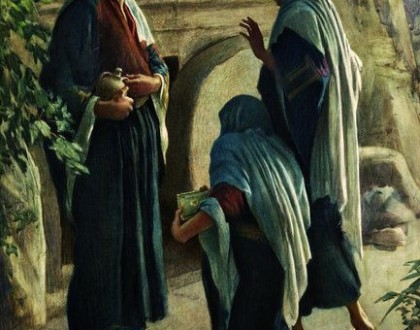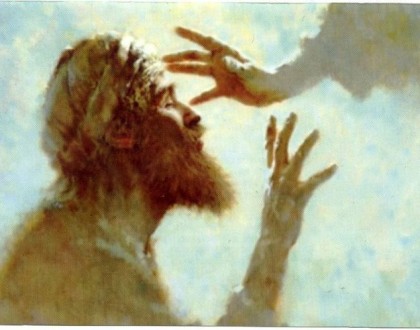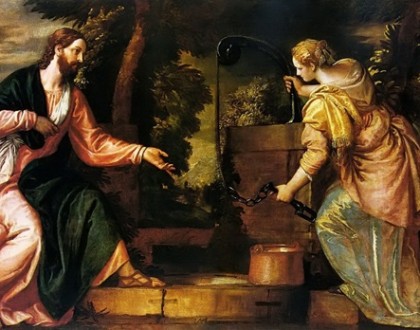Epiphany of our Lord – Sunday, January 4, 2015

Matthew’s Gospel story of the Magi [2:1-12] reveals to us the inevitable struggle that God’s manifestation in Christ implies for the world. If we read the story carefully, we realize that far from being a children’s tale, it is a tragic adult story.
The battle lines are drawn and the forces are being marshaled. A child is born at the same time as a death-dealing power rules. Jesus was a threat to Herod and to them: to the throne of one, to the religious empire of the others.
Consider the scene from Isaiah’s prophecy (60:1-6). Gentiles come from distant places, attracted by the splendor of Jerusalem, bringing gifts and tenderly carrying the sons and daughters of the Holy City! Though darkness may have surrounded the people, the glory of the Lord allows the light to burst forth and shine like a bright new dawn.
What a fitting way to describe what we have just celebrated at Christmas! It announces to us the arrival of these Wise Men from the East and the coming of all men and women from all backgrounds to worship at the feet of the child Jesus.
At home in their distant, foreign lands, the Magi had all the comfort of princely living, but something was missing — they were restless and unsatisfied. They were willing to risk everything to find the reality their vision promised. Unlike the poor shepherds, the Magi had to travel a long road; they had to face adversity to reach their goal. The shepherds also knew adversity, and it had prepared them to accept the angels’ message. But once they overcame their fright, they simply “crossed over to Bethlehem” to meet the Christ Child.
These men of the East, foreigners in every sense of the word, were guided not only by their own wisdom and knowledge of the stars, but were aided by the Hebrew Scriptures that now form the Old Testament.
The Magi, on the other hand, had a much more difficult journey to Bethlehem. It was anything but a romantic, sentimental pilgrimage that we often see in our manger scenes! The Magi were not just holy visionaries or whimsical religious figures; they were willing to wager their money, their time and their energy, and perhaps even their lives to seek out someone who would bring true peace.
The Magi were not completely lost upon their arrival in Jerusalem — the city did not stop their pilgrimage. In fact, in Jerusalem, they were redirected to Bethlehem.
These men of the East, foreigners in every sense of the word, were guided not only by their own wisdom and knowledge of the stars, but were aided by the Hebrew Scriptures that now form the Old Testament. The meaning of this is important — Christ calls all peoples of all nations, Gentiles as well as Jews, to follow him. We could say that Jerusalem and the Old Testament serve as a new starting point for these Gentile pilgrims on their road to faith in Jesus. The people of the big city, indeed even Herod himself, were instrumental in leading the Magi to Christ.
The journey the wise made to Bethlehem was not the only journey they made. They also made a journey in their hearts from paganism to worshipping Jesus. They were not Jews; scholars tell us they were priests of an Eastern religion who consulted the stars (Zoroastrian priests). One of them may have been a king (there is speculation that one of them was Azes II of Bactria who reigned from 35 BC to 10 AD). Therefore we could say they were followers of some kind of pagan religion. Before they set out on their journey to Bethlehem to worship Jesus they were star-readers but they went on an interior journey from reading stars to worshipping Jesus as Savior.
Their old way of life had to change once they met Jesus. The Gospel text said that they returned home by a “different path”, of course they did! Everyone who really meets Jesus changes their path and their lives are never the same again.
Gaspar, Melchior and Balthazar, bless our hearts and our homes with your peace and humility! When we hear the voices of old kings of death and fear and cynicism, may we have the courage to go our own way … rejoicing, because we, too, have seen and experienced the glory of the coming of the Lord.
Recent Sermons

Easter Sunday – The Resurrection
April 14, 2017

4th Sunday of Lent Year A – The Man Born Blind
March 27, 2017

3rd Sunday of Lent Year A – The Samaritan Woman at the Well
March 20, 2017


